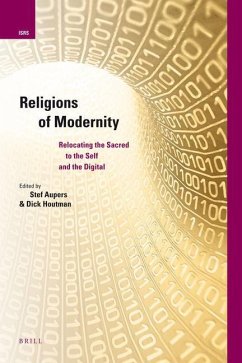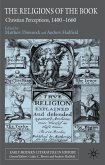Religions of Modernity' challenges the social-scientific orthodoxy that, once unleashed, the modern forces of individualism, science and technology inevitably erode the sacred and evoke the profane. The book s chapters, some by established scholars, others by junior researchers, document instead in rich empirical detail how modernity relocates the sacred to the deeper layers of the self and the domain of digital technology. Rather than destroying the sacred tout court, then, the cultural logic of modernization spawns its own religious meanings, unacknowledged spiritualities and magical enchantments. The classical theoretical accounts of modernity by Max Weber, Emile Durkheim and others, it is argued in the introductory chapter, already hinted that there's a future for such religions of modernity.
Bitte wählen Sie Ihr Anliegen aus.
Rechnungen
Retourenschein anfordern
Bestellstatus
Storno



